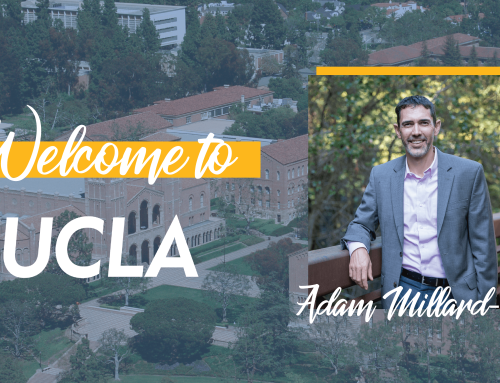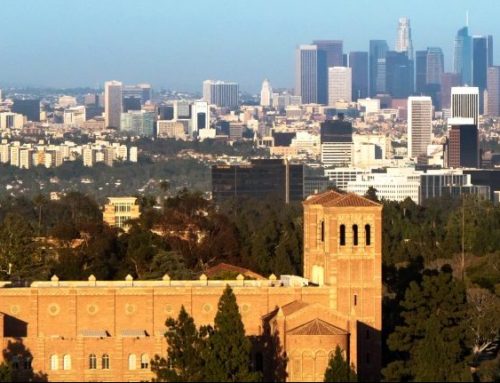UCLA part of team contracted by the California Environmental Protection Agency to study solutions for the state’s largest source of global-warming emissions
The transportation sector is the largest source of global-warming emissions in California and now a team of researchers from UCLA and other UC campuses will embark on a landmark study to achieve carbon neutrality in the next 25 years.
California already experiences hotter temperatures and other climate change effects. The state has set itself an ambitious goal: achieve carbon neutrality by 2045. How to comprehensively reduce emissions from a wide range of vehicles — from passenger cars to freight-hauling trains — has always been a vexing question. To address this, the California Environmental Protection Agency (CalEPA) has partnered with the University of California Institute of Transportation Studies on a landmark study.
A team from UCLA, along with UC Berkeley, UC Davis and UC Irvine, will identify strategies to achieve carbon neutrality in the transportation sector by 2045. This will include analyzing which strategies most effectively and equitably motivate drivers and businesses to transition to zero-emission vehicles. The role of alternative fuels, as well as the impact of land use policy, will also be explored.
Researchers at the UCLA Luskin School of Public Affairs will play an important role in the study. J.R. DeShazo, director of the Luskin Center for Innovation and lead of the UCLA Institute of Transportation Studies research program on sustainable & resilient transportation, is one of the principal investigators and leads the center’s research on transportation electrification as the state’s electrical grid decarbonizes. This includes studies that inform clean vehicle policies and electric vehicle planning. UCLA ITS, also based in the Luskin School and involved in this study, is a leading expert on other strategies to reduce pollution from the transportation sector, including transit and land use planning.
The Budget Act of 2019 appropriated $1.5 million for this study. It also calls on the CalEPA secretary to coordinate and consult on this study with other state agencies such as the Air Resources Board, the Transportation Agency, the Governor’s Office of Planning and Research, and the Governor’s Office of Business and Economic Development.
This is one of two UC studies contracted by CalEPA to help the state achieve carbon neutrality by 2045. The other study will identify strategies to responsibly decrease demand and supply of fossil fuels. Draft study scopes were developed with input from three public workshops and written public comment, and in consultation with various state agencies.





